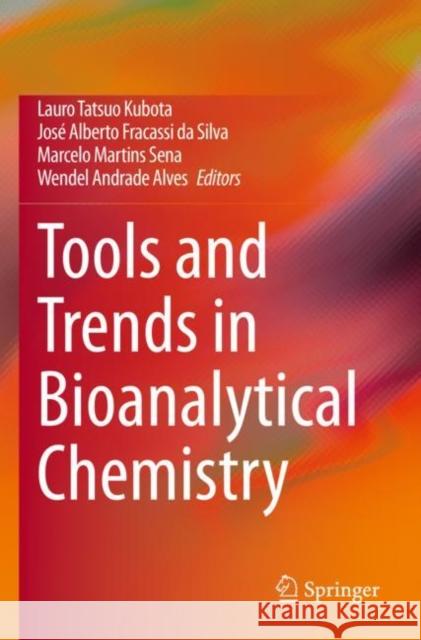Tools and Trends in Bioanalytical Chemistry » książka
Tools and Trends in Bioanalytical Chemistry
ISBN-13: 9783030823832 / Angielski / Miękka / 2022 / 558 str.
Tools and Trends in Bioanalytical Chemistry
ISBN-13: 9783030823832 / Angielski / Miękka / 2022 / 558 str.
(netto: 162,52 VAT: 5%)
Rabat: -50%
Najniższa cena z 30 dni: 269,85
22 dni roboczych
Darmowa dostawa!
This textbook covers the main tools and techniques used in bioanalysis, provides an overview of their principles, and offers several examples of their application and future trends in diagnosis.Chapters from expert contributors explore the role of bioanalysis in different areas such as biochemistry, physiology, forensics, and clinical diagnosis, including topics from sampling/sample preparation, chemometrics in bioanalysis to the latest techniques used in the field. Particular attention is given to the recent advances in the application of mass spectrometry, NMR, electrochemical methods and separation techniques in bioanalysis. Readers will also find more about the application of microchip-based devices and analytical microarrays.This textbook will appeal to graduate/advanced undergraduate students in Chemistry, Biology, Biochemistry, Pharmacy, and Chemical Engineering. It is also a useful resource for researchers and professionals working in the fields of biomedicine and veterinary sciences, with clear explanations and examples of how the different bioanalytical devices are applied for clinical diagnosis.
This textbook covers the main tools and techniques used in bioanalysis, provides an overview of their principles, and offers several examples of their application and future trends in diagnosis.Chapters from expert contributors explore the role of bioanalysis in different areas such as biochemistry, physiology, forensics, and clinical diagnosis, including topics from sampling/sample preparation, chemometrics in bioanalysis to the latest techniques used in the field. Particular attention is given to the recent advances in the application of mass spectrometry, NMR, electrochemical methods and separation techniques in bioanalysis. Readers will also find more about the application of microchip-based devices and analytical microarrays. This textbook will appeal to graduate/advanced undergraduate students in Chemistry, Biology, Biochemistry, Pharmacy, and Chemical Engineering. It is also a useful resource for researchers and professionals working in the fields of biomedicine and veterinary sciences, with clear explanations and examples of how the different bioanalytical devices are applied for clinical diagnosis.











